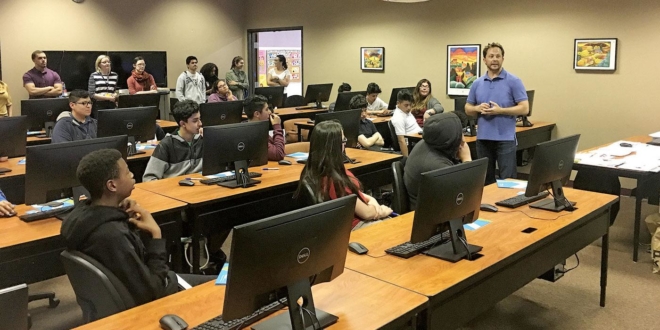
GM Financial, through its KEYS program, teaches first-time buyers about savings, credit and other auto finance basics.
First-time car shoppers often have misconceptions about buying and financing vehicles. Lenders who want to attract and retain financially savvy customers must provide accessible financial literacy information, experts say.
A first-time millennial or Generation Z car buyer may enter a dealership with some knowledge of family members’ loan or lease terms, a vague notion of what a service contract is and a piece of paper on which they have calculated how much from each paycheck they can spend on monthly vehicle payments.
“It’s a huge hole, and … regardless of age, customers feel unsettled when they go into the F&I box,” Andrea Brimmer, chief marketing officer for Ally Financial, told Automotive News. “They don’t really fully understand rates, the difference between rates versus terms.”

Brimmer: Buyers? expectations may be unrealistic.
First-time buyers, who tend to be younger, sometimes enter dealerships with unrealistic expectations. For instance, some don’t realize that there could be a wide range in what they are going to pay depending on their credit score, the type of vehicle they hope to finance and how much money they put down, Brimmer said.
The disconnect may stem in part from the shoppers’ sources of financial information. Millennials often eschew expert financial advice in favor of anecdotal evidence from friends and family, according to a February survey by Equifax.
Equifax found in the survey of 1,000 consumers that while most millennials say they understand how their credit scores influence car shopping, their projected monthly payments tell a different story.
Millennials in subprime credit tiers anticipate spending roughly $20,000 on a vehicle, the same amount their prime counterparts expect to pay.
Relatable content
When it comes to crafting educational content, lenders have poured millions into reaching first-time buyers on social media.
“As you would imagine, they tend to go home — or even from the dealership — tweet out, post on Facebook or text to try to verify the things they were being told at the dealership,” Brimmer said. “They tend to fact check things at the dealership online, particularly lease terms and finance rates.”
While there are plenty of sources of financial literacy online, lenders want to ensure the information millennial customers reference is reliable.

Borrello: How to reach millennials?
Some auto lenders are trying to reach millennials through personas they can relate to. For example, Lily, the millennial manifestation featured in Ford Motor Credit Co.’s 11 videos on credit and financial education, made her debut in 2016. Ford Credit worked with Ford’s advertising partner GTB, and validated the content and the material with the target audience through social media, focus groups and surveys.
Ford Credit’s marketing director, Krista Conyers, said focus groups found Lily relatable but suggested she could be more mature.
“We thought she would resonate,” Conyers said. “We recognize financing is a serious subject, but you walk a thin line when you produce these videos — how to take content that’s very serious and a little on the dry side, and how do we present it in a way that’s creative, simple and understandable.”

With Lily, a character in a series of videos, Ford Motor Credit Co. seeks to teach millennials about auto finance.
New demographic
In the eight videos last year, Lily grows up a bit. Conyers said it helped not only transition into content with more depth — for instance, contract information or the impact of interest — it was also to show the evolution of the character.
“Lily is not stagnant. She’s growing. In the first video, they were in an apartment studying. In the second set, she was dressed for work,” Conyers said.
The videos, available on the Ford Credit site, the Ford Drives U site and YouTube, have garnered more than 3.5 million views.
Ally Financial has invested in promotional mobile apps that help customers track their spending habits and budget for major purchases.
Ally also conducts monthly consumer research panels and works with the Center for Generational Kinetics in Austin, Texas.
GM Financial works with current and future consumers to craft financial literacy messaging. The lender has sent representatives to universities and high schools to determine what kinds of information younger generations of car buyers respond to, and the best online channels on which to focus.
Some of the messaging is brand-focused depending on where the demographic gravitates.
“It’s no secret that most [automakers] and their lenders are looking at ways to better reach millennials in general. This is the next up-and-coming set of buyers that we need to figure out,” Lane Borrello, GM Financial spokeswoman, told Automotive News. “A smarter consumer for us is a better consumer long term.”
